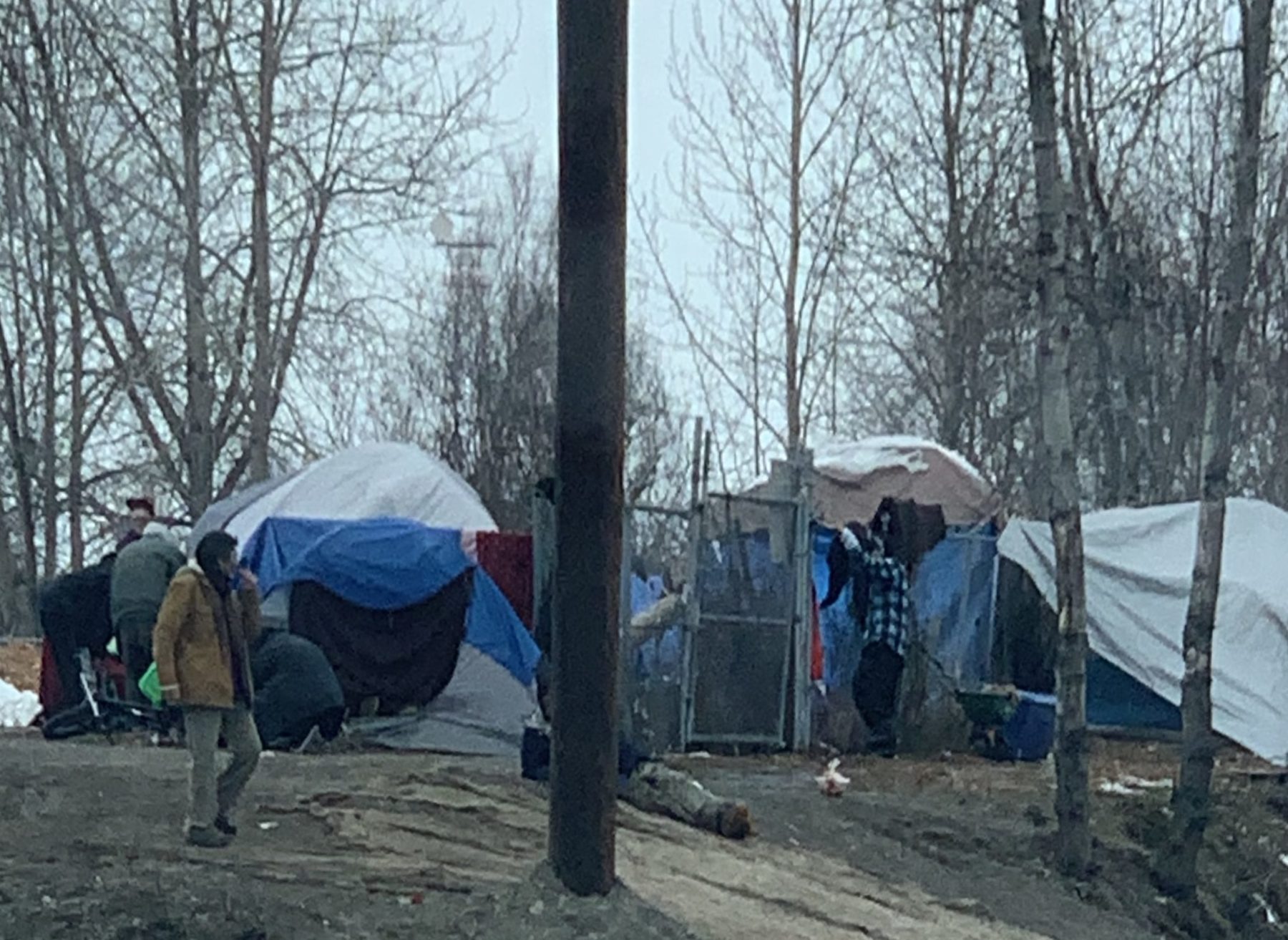Heather Harris, the director of the Anchorage Health Department, says the proposed ordinance that would require homeless shelters to be licensed by the municipality comes with a number of risks that need to be addressed first.
In a memo to Assemblywoman Meg Zaletel and the acting mayor’s chief of staff, Harris warned about several of the unintended consequences of requiring licenses for nonprofit shelter operators, including:
Provider burden: Although it may not be the intent of the ordinance, licensing may burden shelter providers with additional costs, including employee costs, Harris said.
Timeline and costs of process: Harris pointed out that regulatory compliance such as background checks will increase the costs of running a shelter, and such background checks can take a lot of time, which can additionally burden the shelter operators, who are not generally operating with a lot of excess staff or funds.
“Has the Assembly investigated costs shouldered by providers to go through the Conditional Use Permit (CUP) process?” Harris asked. “Are the insurance requirements in alignment with threshold norms, or will this licensing process increase costs?
“If there are costs on either side, what level of risk are we asking providers to take and are they going to be willing to take those risks to provide a public service?” she asked in her memo.
Unintentional decrease in shelter system capacity: “… space limitations and the burdensome nature of these regulations could minimize the amount of people experiencing homelessness served,” Harris wrote.
Fiscal risk: “Compared to other business ventures, like alcohol and marijuana distributors, who stand to make a significant profit at the end of their licensing process, shelter providers are not in a profit-seeking structure. The initial capital investment has a financial benefit once achieving licensing that bears a cost/benefit analysis. This may not be true for future providers.”
“Some providers currently providing services (some outside of their core service) may decide to stop delivering services. In October 2020, at least two providers publicly stated that they would stop sheltering this population if required to comply,” Harris wrote.
While the municipality is working to get homeless out of the Sullivan Arena, “increasing the risk of decreasing the shelter system capacity is a significant concern,” Harris added.
Background checks: In addition to potentially being slow and/or fiscally burdensome, the ordinance could threaten removing the ladder for employment opportunities that many providers allow for in having previous participants become staff. This means as people become more functional, they can be paid to take on duties in the shelter, and this provides them with structure, work experience, and a sense of purpose, all important to finding other work in the future. Requiring a background check for client-to-staff members would create a barrier to overcoming homelessness.
“Are the background check requirements for all facilities and all clients? Clarification about the motivation for background checks could be helpful. Moreover, weighing out that motivation to the benefits of staff with lived experience (who may be barred from employment by currently drafted license requirements) would be important,” Harris noted.
Human capital: Harris said that two or three municipal staff will be required to start a shelter licensing program and maintain it over time. She said that the initial investment to establish processes at the municipality and the workflow would be substantial.
“Therefore, there needs to be at least a supervisor and a coordinator to do this work, though two coordinators would be more realistic,” she wrote. She added that the relationships required to be an effective compliance officer are time intensive and that providers need to trust that the compliance officer understands them and their services to actively work with them on improvement plans as needed.
“When there are problems, they are incredibly time-intensive, be that inspection, re-inspection, improvement planning, investigations, revocation processes, etc.,” she wrote.
Harris on April 21, 2021 also made a formal request for an economic impact summary as it relates to the added work burden at the municipality.
Harris also noted that public hearings about homeless shelters are “extremely volatile” and “politicized.” Rather than the Anchorage Assembly having public hearings about possible licensing of shelters in Anchorage, she recommended that “making hearings of this nature public, rather than running it through the Administrative Hearing Office, potentially provides a platform for ridicule and rancor. It would be recommended to explore alternative options.”
Read: Targeting faith-based shelters, Assembly plans to require a license to operate
An ordinance to require licenses for shelter providers is being discussed by the Anchorage Assembly, and those providing shelters, such as faith-based groups, are concerned that the regulations that follow the ordinance will be burdensome and are intended to put them out of service.
The ordinance has been the subject of two town hall meetings this week and will be on the Tuesday agenda of the Anchorage Assembly, whose meetings start at 5 pm at the Loussac Library ground floor Assembly Chambers.
